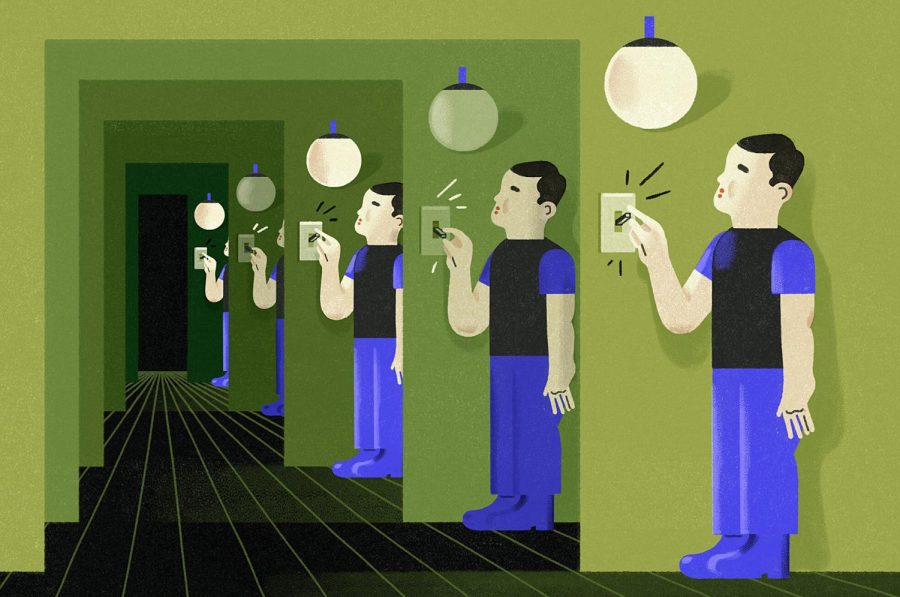Think Again Before You Say “I’m so OCD”
December 3, 2021
We’ve all heard it before, “I’m so OCD because I like my things organized” or “I’m so OCD because I like my room cleaned at all times,” but most of these people are making these claims without actually knowing the basic fundamentals of what OCD actually is.
OCD, or Obsessive Compulsive Disorder, is a mental disorder that is characterized by a cycle of obsessions and compulsions that cause anxiety in the sufferer. According to the International OCD Foundation, “Obsessions are thoughts, images or impulses that occur over and over again and feel outside of the person’s control” and compulsions are “repetitive behaviors or thoughts that a person uses with the intention of neutralizing, counteracting, or making their obsessions go away.” Some common examples of obsessions are fears of contamination, scrupulosity, fears of harming oneself or others, and perfectionism. Going along with this, common compulsions are cleaning, checking, mental compulsions, and repeating.
OCD isn’t very common, and according to The Anxiety and Depression association of America, “OCD affects 2.2 million adults, or 1% of the population” (https://adaa.org/understanding-anxiety/facts-statistics).
OCD affects everyone differently, and because of this, there are different types of OCD. According to OCD – UK, The five main subtypes of OCD are checking, contamination/mental contamination, symmetry and ordering, ruminations/intrusive thoughts, and hoarding. Most people with OCD have a combinations of these subtypes and all with OCD have a rumination and intrusive thought component.
Coupled with the obsessions and compulsions is an intense feeling of anxiety that takes over a person’s brain. The obsessions invade the person’s head and latch onto their brain, causing them to feel anxiety until they perform a compulsion, like washing their hands, checking if the stove is off, or flipping a light switch on and off four times, which temporarily lessens the anxiety and fear of impending doom.
These obsessions are usually about harming oneself or another, like a loved on. Those with OCD fear that if they don’t perform a compulsion, something horrible will happen to them or someone they love. So, they are forced to complete the compulsion to perfection, which can take several hours, cause an immense amount of anxiety and stress for the person.
These obsessions and compulsions aren’t just a small part of a person’s day either. The baseline diagnostic criteria for OCD is having obsessive and compulsive behaviors for at least one hour each day, but it usually happens for much longer than that. The obsessions are usually constant and never fully go away after performing a compulsion, they just get quieter. Because of this, the mental tournament never fully goes away.
After reading this, I hope you learned a little bit about OCD and what people who have it have to go through, and I hope you saw how liking your desk to be neat is very different from OCD. So, please don’t use the term OCD for liking things tidy, because all it does in diminish the real struggle that so many people have to go through on a daily basis.

